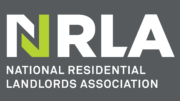Airbnb has publicly endorsed the Labour Party’s initiative to abolish Section 21 evictions, aligning with the government’s forthcoming housing reforms. In a paid article on the Labour List website, John Park, Airbnb’s head of government affairs and public policy in Northern Europe, expressed the company’s support for the proposed changes aimed at enhancing tenant security in both private and social housing sectors.
Airbnb advocates for housing stability
John Park wrote, “We advocated for ending Section 21 evictions, a cause we’re glad to see the new government moving forward with. We also made clear our readiness to help implement tourism taxes where there is clear support from the local community.” This statement underscores Airbnb’s commitment to fostering safer and more secure housing environments for tenants across the UK.
Park highlighted findings from a recent report by business consultancy EY, which indicates there is “little to no relationship” between Airbnb listings and house or rental prices. He noted that entire homes listed on Airbnb account for less than 0.7% of total dwellings nationally. Despite this minimal impact, Park acknowledged that certain areas face unique challenges and reaffirmed Airbnb’s dedication to contributing positively in these hotspots.
Push for comprehensive regulation
“The current regulatory system in England doesn’t yet equip local authorities with the tools to address problem areas effectively – as there is no clear or consistent data on the number of short term lets. That’s why we’ve long advocated for a comprehensive, easy-to-use, national registration scheme,” Park explained. He emphasized that such a scheme would enable more effective regulation of short-term rentals, providing essential data to local authorities to better understand and manage the impacts of Airbnb in their regions.
In addition to regulatory reforms, Park pointed out the financial benefits for Airbnb hosts: “The typical host in the UK earned nearly £5,500 a year—the equivalent of two months’ additional pay for the average UK household.” He added, “This extra income has been a lifeline for many of our hosts during the cost of living crisis, with two-thirds of UK hosts stating that it helps them remain in their homes and communities they love.”
Supporting homeownership and community resilience
Airbnb is also focused on expanding opportunities for homeowners to share space, thereby increasing the accessibility of hosting. “We want to give more people access to this opportunity by working with banks and building societies to create mortgages that allow homeowners to share a space in their homes,” Park stated.
Looking ahead, Park anticipates the government’s plans for the housing sector: “We are expecting to hear soon from the new government on their plans for the sector. A well-designed, light-touch registration scheme, combined with thoughtful adjustments to the planning system, will enable local authorities to manage any impacts where issues are evident.”
“At Airbnb, we want to see change which supports local communities, benefits families, and contributes to the UK economy. We look forward to working with the new UK Government in making this a reality,” Park concluded.
Implications for landlords and property investors
The government’s decision to scrap Section 21 evictions is set to transform the private and social housing markets, with Airbnb positioning itself as a supportive partner in these reforms. Landlords and property investors may need to adapt to new regulations that prioritize tenant security and require more rigorous property management practices.
As the housing sector undergoes these changes, collaboration between government entities and private companies like Airbnb will be crucial in achieving sustainable and equitable housing solutions. This development raises important questions for UK landlords and property investors regarding the future of rental regulations and the role of short-term let platforms in the broader housing market.
With the upcoming formal consultation on the Decent Homes Standard and the implementation of Awaab’s Law, the new regulatory framework will further define tenant protections and property standards. As these reforms take shape, the property market will continue to evolve, reflecting the government’s commitment to addressing the UK’s housing crisis.







